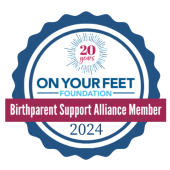Starting the adoption home study can feel overwhelming at first. You’re opening up your home and heart to be evaluated, and that vulnerability is no small thing. But understanding common home study questions ahead of time can help take the mystery out of the process and make it more manageable.
For adoptive parents, this may sound like a lot to undergo, but it’s designed to ensure the best outcome for both the child and the family.
Social workers aren’t there to judge or criticize, they want to understand your family dynamic, values, and commitment to parenting. Their role is to assess the following:
This part of the adoption home study process isn’t about perfection. Instead, social workers look for thoughtful, intentional answers that show genuine readiness for the challenges and rewards of adoption.
During the interview, you can expect questions that cover your family background, daily routines, parenting philosophy, and more. These are often structured to give the social worker a holistic view of your life and home environment. While the exact questions may vary, the examples provided here will give you a general idea of the topics you’re likely to discuss.
This question often sets the tone for the rest of the interview. Social workers want to understand what led you to adoption and why you feel it’s the right choice. Be honest and heartfelt. Whether you’re adopting due to infertility, a desire to help a child in need, or for any other reason, your motivations should reflect a well-thought-out decision.
Adoption is a lifelong commitment, and your expectations play a key role in determining how you’ll support the child emotionally and culturally. The social worker may ask if you’ve considered how you’ll handle questions about the child’s birth family or how you’ll talk about adoption as they grow up.
Your parenting style can influence how you respond to a child’s needs, discipline, and development. Are you more structured, nurturing, or flexible? Social workers are interested in how your approach will meet the needs of the child being placed in your home.
One of the critical components of the adoption home study involves a thorough assessment of your home. Don’t worry—they aren’t looking for a mansion or luxury furniture. Instead, they focus on whether the home is safe, clean, and equipped for raising a child. Here are key areas of assessment that social workers typically consider:
Social workers may also ask about your neighborhood, local schools, and nearby support systems. They want to ensure that the environment supports the child’s growth and development.
Adoption doesn’t just affect the adoptive parents—it involves the entire family. Social workers are interested in understanding how family dynamics will impact the adopted child’s experience. The goal is to assess whether the family is supportive, adaptable, and able to work through challenges together.
Support from grandparents, aunts, uncles, and close family friends can play a major role in a child’s development. The social worker may want to know if your family members understand your decision and how they plan to support the adoption. If there are concerns, they may also explore how you’re addressing them.
If you’re adopting as a couple, teamwork and communication are crucial. The social worker will ask about how you resolve conflicts, divide responsibilities, and collaborate on decisions. Demonstrating that you can work as a team shows you’re ready to tackle parenting challenges together.
Raising a child takes a village, and the social worker will be interested in your broader support system. Whether it’s family, friends, or community groups, they want to know you have people to rely on when needed. This is especially important for single adoptive parents who may need additional backup.
While wealth isn’t a requirement for adoption, financial stability is essential. Social workers will have you evaluate your budget and how you can provide for a child’s basic needs.
Social workers typically ask for employment details, including your job role, hours, and income. For couples, they may explore how both partners’ work schedules balance with family time. The goal is to ensure that your job won’t interfere with your ability to care for a child.
This is especially important for adoptive parents who work outside the home. The social worker may ask about daycare plans, work-from-home flexibility, or any arrangements for relatives or friends to assist with childcare when needed.
Raising a child comes with ongoing costs, from medical care to school supplies. The social worker may ask about your budget and whether you’ve accounted for these expenses. If you’re adopting a child with special needs, they may also ask if you’ve researched any additional resources or financial assistance programs.
The adoptive home study also includes background checks to ensure the safety and well-being of the adoptive parents. This process typically involves criminal history, medical history, and character references.
Social workers will run criminal background checks, but they’ll also want to discuss any legal issues directly. Minor infractions, like a decades-old speeding ticket, aren’t likely to affect your application, but honesty is key. If you’ve had significant legal trouble in the past, they’ll assess how you’ve grown and whether it could affect parenting.
This question isn’t about eliminating candidates based on health conditions. Instead, it helps social workers understand any limitations or health issues that might affect your ability to parent. They’ll also be interested in how you manage ongoing conditions and whether you have access to proper healthcare. This step often includes medical reports completed by your doctor and any other health or mental health care providers you see.
Adoption can be a rewarding but complex experience, and social workers will evaluate whether you’re emotionally prepared to provide stability and understanding for a child. Emotional readiness goes beyond good intentions—it’s about showing resilience, empathy, and adaptability in the face of challenges.
Children being adopted, especially older children or those from foster care, may have experienced trauma. Social workers may ask if you’ve taken any parenting classes or sought resources about trauma-informed care. If you’re adopting a child with a complex history, showing that you’re willing to learn and adapt is essential.
It’s important to be open and age-appropriate when discussing adoption with your child. Social workers will explore how you plan to introduce the topic, answer questions, and celebrate the child’s background and birth story. Showing that you’re comfortable discussing adoption lays a solid foundation for trust.
For families adopting transracially or internationally, cultural sensitivity is a vital part of the adoption home study process. Social workers want to ensure that the adoptive family is prepared to honor and support the child’s cultural identity.
If you’re adopting a child from a different cultural or ethnic background, expect questions about how you’ll embrace that part of their identity. Social workers might ask about books, events, community groups, or family traditions that you plan to incorporate into their upbringing.
A willingness to learn is key when adopting a child of another culture. Social workers may ask how you plan to educate yourself, connect with cultural communities, and teach your child about their heritage. Your answer should reflect genuine curiosity and a commitment to creating an inclusive environment.
Supporting your child in transracial adoption goes far beyond providing them with books and toys that reflect their background. It requires adoptive parents to take an honest look at the state of the world and recognize that racism and discrimination exist. During the home study, the social worker will explore how you plan to confront this in a way that protects and empowers your child.
The adoption home study is a key part of the adoption process, ensuring that children are placed in nurturing, stable homes. It’s important that hopeful adoptive parents enter the home study process prepared to be open, honest, and reflective. With this guide, families can feel reassured that the home study interview is not only an assessment of their capability, but a great tool to help them feel prepared for the journey ahead.




